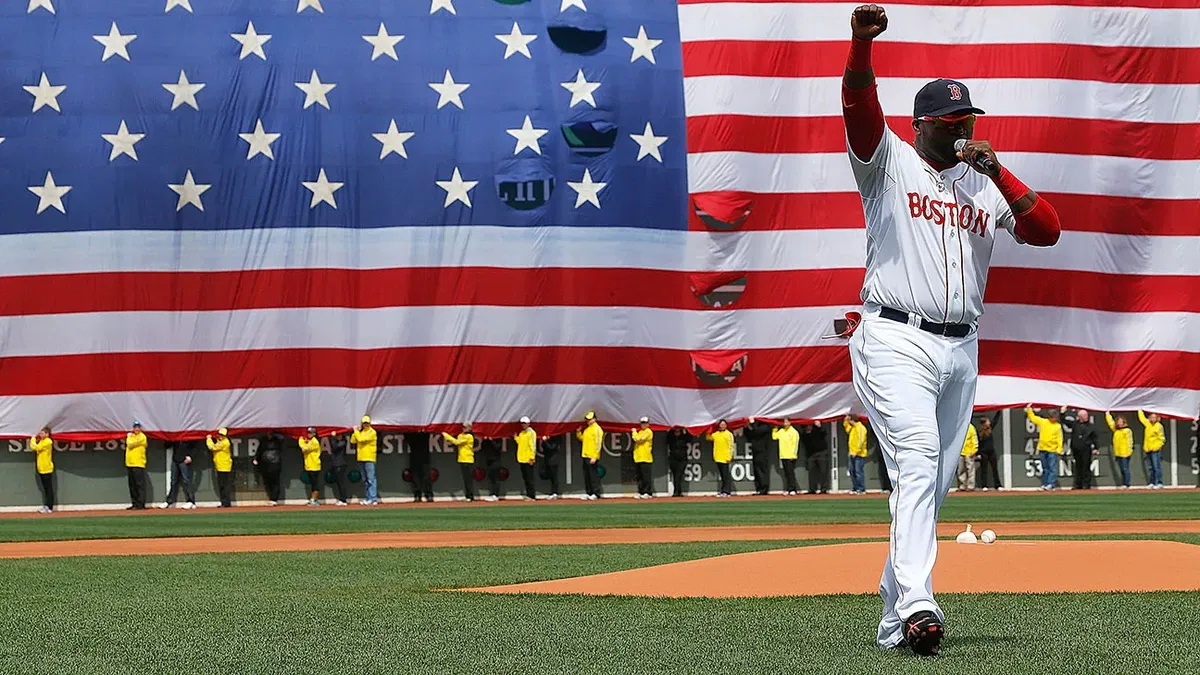



When dysfunction meets denial, somebody’s bound to grab a mic and light the match. As the Red Sox front office scrambles to justify a franchise-altering decision, David Ortiz pointed fingers with Hall of Fame precision. But not everyone’s buying his version of events. One former GM is tearing the curtain down and calling out the egos that may have cost Boston its cornerstone, Rafael Devers.
Watch What’s Trending Now!
This trade has split the baseball world into two. While some believe that it was the right decision to let go of someone not ready to adjust to the team’s needs, others are thinking from the player’s side.
Talking about the trade, Red Sox legend David Ortiz reacted, “The organization is always going to be there. Players come and go. As a player, sometimes you’ve got to put your ego aside and understand that once you get paid, you’ve got to find a way to do what you’re told.” But MLB insider Jim Bowden thinks that Boston has messed up another one of their superstars.
In a recent show on Foul Territory, they talked about the whole Devers deal like half the world is. Bowden said, “An ego got in the way here. And whether it’s Craig Breslow’s ego after Devers wanted to meet with Cora… I mean, look, I don’t know the reasons behind it. They have their reasons, but no, this is unacceptable.”
Rafael Devers stood his ground. And in a way, who could blame him? He wasn’t just any player. He was Boston’s $300 million man, a cornerstone slugger with pride stitched into his jersey. When the Red Sox nudged him toward first base, it wasn’t just a position switch—it felt like a demotion. And for a young star with his resume, saying no wasn’t ego—it was identity.
Someone’s ego on the Red Sox side got in the way, says @JimBowdenGM.
“I don’t care if he [Devers] hurt Breslow or Henry’s feelings for not wanting to do something. Either you make the player do it, and if you’re not gonna make him do it, then you live with the consequences.” pic.twitter.com/8OFeaJ6IPS
— Foul Territory (@FoulTerritoryTV) June 16, 2025
But from the team’s view, flexibility is the currency of modern baseball. The Red Sox weren’t asking him to scrub cleats—they were solving a roster puzzle. A willingness to shift for the team is what turns stars into leaders. When Devers refused, it sent a message: The name on the back mattered more than the one in front.
In the end, both sides stared into the same mirror and saw different villains. Devers saw a front office chipping away at his value; Boston saw a player choosing self over system. Maybe David Ortiz was right—ego is everyone’s enemy, and this one cost them both. The team lost its bat, and the clubhouse lost its anchor.
So, who was right—Devers for standing tall, or the Red Sox for standing firm? Maybe both. But when egos collide in a clubhouse built on banners, nobody wins championships—they just trade away the chance. Boston didn’t just lose a bat; it lost the balance between pride and pragmatism. And if this is what “team-first” looks like, the front office might want to bat ninth in the next lineup card.
Although the Red Sox got some good players, will that be enough to fill in for Devers?
When the smoke clears and the spin stops, only one question echoes through Fenway’s ancient rafters: Was it worth it? The Boston Red Sox just pulled the plug on Rafael Devers—again proving that timing, tact, and talent evaluation might not be their strong suits. Sure, they brought in some shiny new toys, but replacing an elite bat with a handful of maybes feels like vintage Red Sox roulette.
The Red Sox landed four names in return for Rafael Devers, but none scream “franchise saver.” Jordan Hicks brings heat but also baggage — a 6.47 ERA and an injured toe. Kyle Harrison is young and promising, yet already back in Triple-A. Prospects James Tibbs III and Jose Bello? Talented, sure. Proven? Not even close.
Replacing Devers’ .905 OPS isn’t a plug-and-play operation, even in theory. Hicks and Harrison could help stabilize a rotation ranked 22nd in ERA. But they’re more fixer-uppers than frontline firepower. Meanwhile, Tibbs might rake someday—but Devers was raking yesterday.
At best, these players might fill gaps. But filling Devers’ shoes? That’s a whole different blueprint. So yes, the Red Sox got bodies. But did they get ballplayers? That’s still stuck in the on-deck circle.
In their quest to save dollars, Boston may have mortgaged both runs and relevance. Replacing a cornerstone with question marks rarely builds a contender—it builds confusion. Maybe one of these “pieces” becomes something someday. But until then, the Red Sox might have just swapped a slugger for a shrug.

